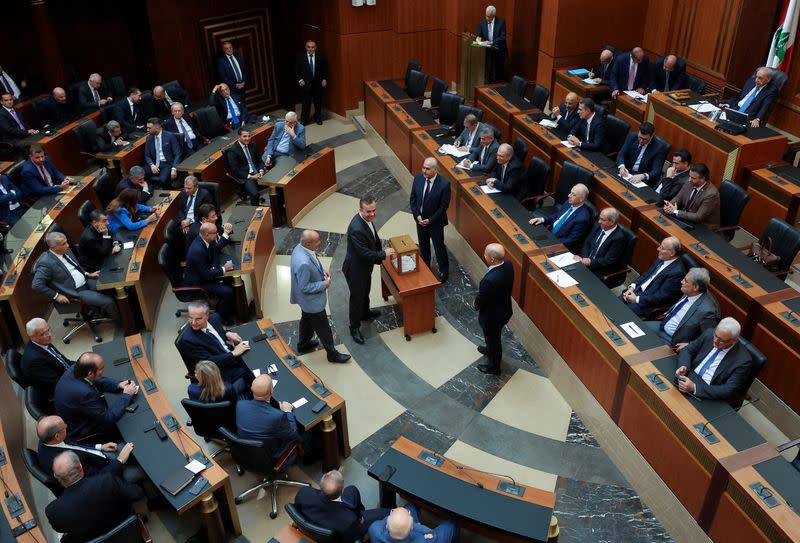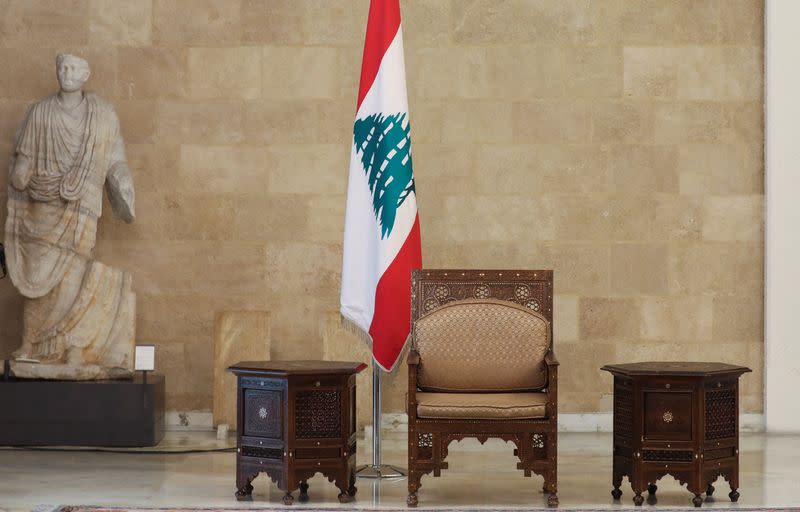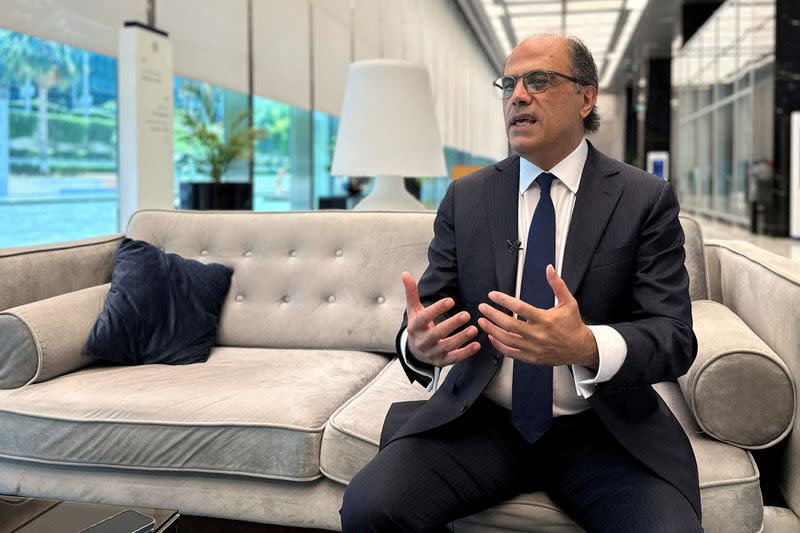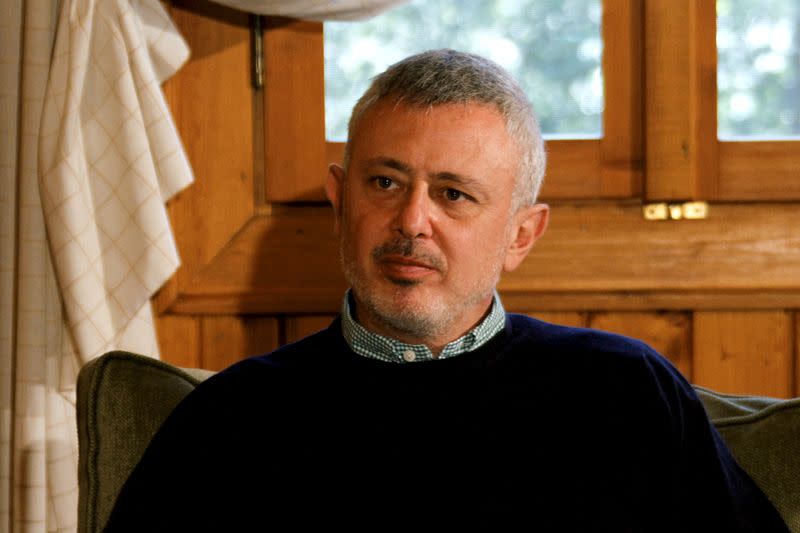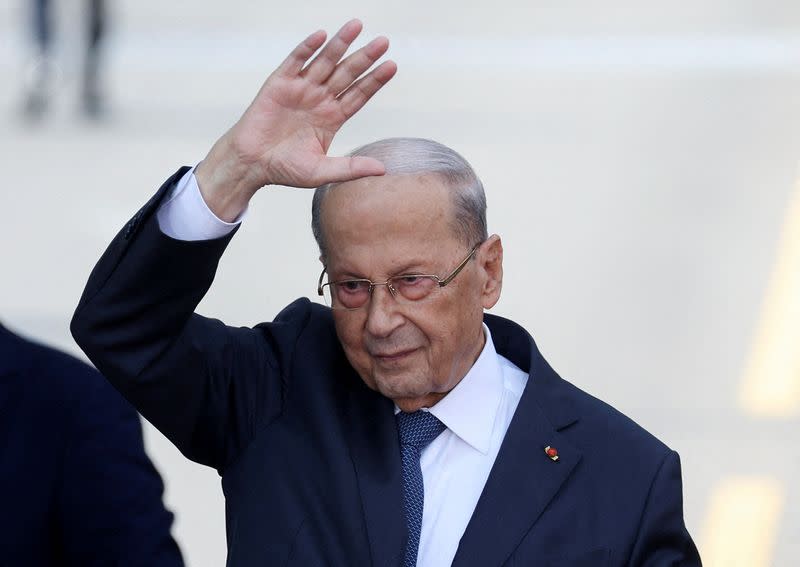Factbox-Candidates in the frame to fill Lebanon's vacant presidency
- Oops!Something went wrong.Please try again later.
- Oops!Something went wrong.Please try again later.
- Oops!Something went wrong.Please try again later.
- Oops!Something went wrong.Please try again later.
BEIRUT (Reuters) - Lebanon's parliament has been called to convene on Wednesday in a bid to elect a head of state to fill the vacant presidency. But with the main parties at odds over who should take the post, the session appears likely to fail.
The post has been empty since Michel Aoun's term ended in October, underlining the deep political dysfunction that has compounded a four-year-long financial crisis. The post must go to a Maronite Christian under a sectarian power-sharing system.
None of the main names put forward currently enjoy broad enough support to be elected: The rules require two-thirds of parliament's 128 lawmakers to attend for the session to go ahead, meaning one third can torpedo a vote by not showing up.
Here are the main names in the frame:
JIHAD AZOUR
Azour, a former finance minister, has served as the International Monetary Fund's Director of the Middle East and Central Asia since 2017.
He was nominated by groups including Lebanon's biggest Christian parties the Lebanese Forces (LF) and the Free Patriotic Movement (FPM), which are at odds on many other issues. The main Druze faction, the Progressive Socialist Party led by the Jumblatt family, has also backed him.
In his first public comments on his candidacy on Monday, Azour said his candidacy was "a call for unity".
Azour, 57, served as finance minister from 2005 to 2008, a period of political conflict pitting a government backed by the West and Saudi Arabia against opponents aligned with Damascus and led by the Iran-backed Shi'ite group Hezbollah.
Hezbollah, meanwhile, has declared him "a candidate for confrontation", referring to his cabinet role during the political crisis that culminated in armed conflict in 2008 and the heavily-armed Hezbollah taking over much of Beirut.
But LF leader Samir Geagea, a Hezbollah opponent, has described Azour as neutral and the candidate Lebanon needs to carry out reforms to address the financial crisis.
During Azour's IMF tenure, the Fund reached a preliminary $3 billion funding agreement with Beirut, conditional on reforms which the government has mostly failed to enact.
SULEIMAN FRANGIEH
Heir to one of Lebanon's oldest political dynasties, Suleiman Frangieh has long been seen as a potential president and appeared close to getting the job in 2016 before it went to Aoun as part of a cross-party political deal.
His main backers this time are the allied Shi'ite parties, Hezbollah and Amal, headed by Parliament Speaker Nabih Berri. Frangieh, 57, is a close personal friend of Syrian President Bashar al-Assad.
One of Hezbollah's closest allies, Frangieh has described its arsenal as vital to defending Lebanon from Israel, and has been dismissive of the capabilities of Lebanon's U.S.-backed army. His critics cite his close Hezbollah ties as a main reason for opposing his candidacy.
Frangieh was thrust into politics early in life after his parents and sister were killed by a Christian militia in 1978 at their home in the north, part of a battle for primacy among Christians during the 1975-90 civil war.
He was a pillar of a Damascus-dominated order that ruled Lebanon for 15 years after the war, until Syria was forced to withdraw in 2005 following the assassination of Rafik al-Hariri. His Marada party is one of Lebanon's smaller Christian factions.
JOSEPH AOUN
Although Wednesday's session is expected to pit Frangieh and Azour against one another, army commander General Joseph Aoun has been considered as a possible third candidate.
Army commanders have moved into the presidency on several occassions in the past, including in 2008 when Michel Suleiman became head of state as part of a deal to end the political crisis.
Aoun has led the U.S.-backed army since 2017, a tenure mostly defined by the financial crisis. In 2021, he warned the meltdown would "inevitably lead to the collapse of all state institutions including the Lebanese Armed Forces, the backbone of the country".
A career soldier, he also criticised ruling politicians over the collapse, saying soldiers were going hungry along with the rest of the population and asking politicians, "what do you intend to do?".
Shortly after assuming the army command in 2017, he oversaw the defeat of Islamic State militants at the Syrian-Lebanese border. The campaign won praise from the U.S. ambassador at the time, who said the army had done an "excellent job".
Geagea has previously expressed support for him as a possible president, crediting him for running the army well and acting "as a statesman".
But others oppose him: senior Christian politician Gebran Bassil earlier this year accused him of usurping the defence minister's powers and of corruption. Aoun, in response, said he was willing to break the law to keep his troops healthy, fed and accomplishing their missions.
(Writing by Tom Perry, Editing by William Maclean)
